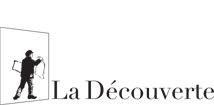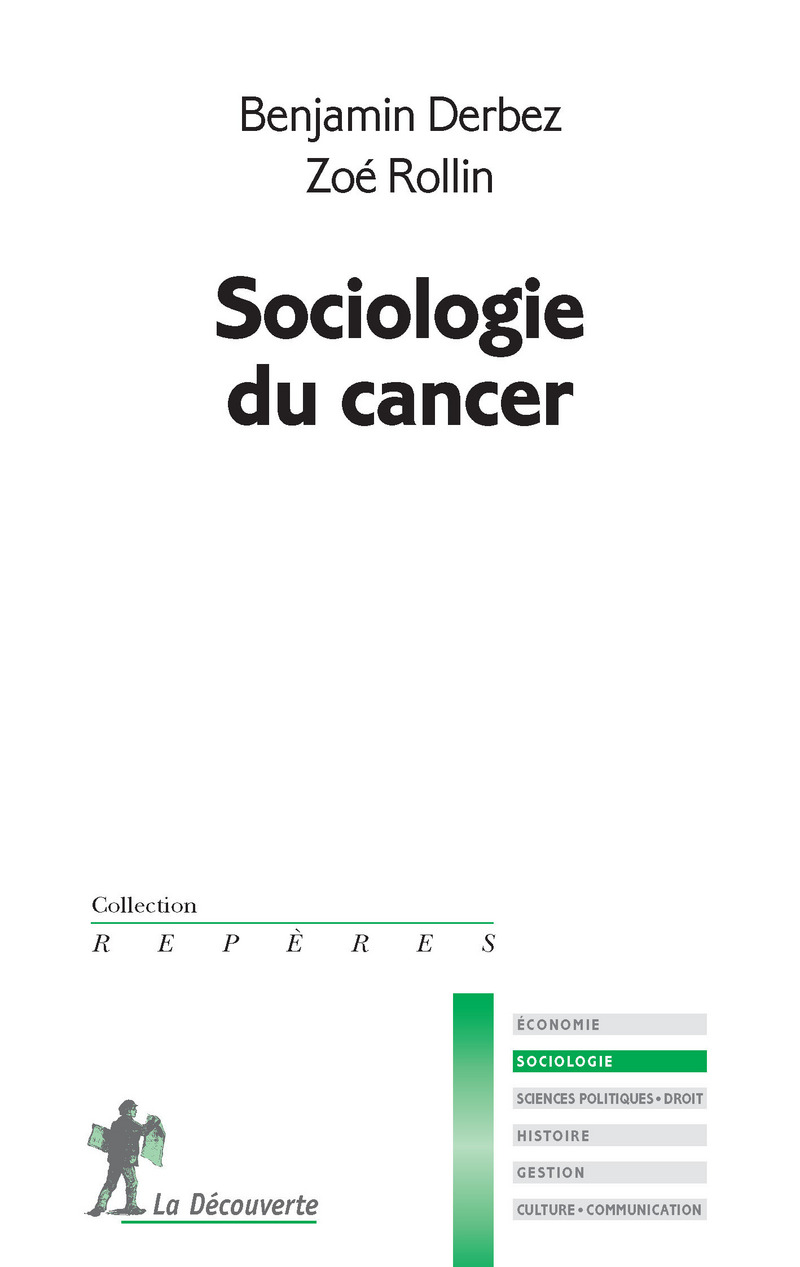Sociologie du cancer
Benjamin Derbez, Zoé Rollin
En un peu plus d'un siècle, le cancer est devenu l'une des causes majeures de mortalité dans les sociétés occidentales vieillissantes. En France, il est la première cause de mortalité depuis 1989. D'importants moyens sont déployés, en particulier dans le domaine biomédical, pour faire face à ce fléau.
Mais le cancer n'est-il qu'un événement biologique individuel ? Sommes-nous tous socialement exposés aux mêmes risques d'en développer un ? Quel est l'impact de sa prise en charge sur la vie des malades et leurs expériences ? Comment les représentations sociales sur le cancer ont-elles évolué ? Quels sont les enjeux collectifs actuels liés à sa prévention ?
L'ensemble de ces questions souligne l'intérêt d'aborder le cancer comme un fait social à part entière. En adoptant une vision sociologique ouverte au dialogue interdisciplinaire, ce livre propose une lecture synthétique d'un champ scientifique en plein essor. Il met ainsi en évidence les processus sociaux et politiques à l'œuvre dans la lutte contre le cancer.

Nb de pages : 128
Dimensions : 12 * 19 cm
 Benjamin Derbez
Benjamin Derbez

 Zoé Rollin
Zoé Rollin

Table des matières 

Introduction / Une sociologie du cancer, pourquoi ?
I / La construction sociale de la biomédecine du cancer
Le cancer révolutionné
Théorie humorale et nihilisme thérapeutique - Pathologie cellulaire et cure chirurgicale
La recherche de nouvelles thérapies
Le développement de la radiothérapie et la Ligue contre le cancer - Les centres anticancéreux, fers de lance de la lutte contre le cancer en France - L'American Cancer Society et la recherche sur les chimiothérapies
Politisation de la lutte contre le cancer
De la " guerre contre le cancer " aux thérapies moléculaires ciblées - L'activisme thérapeutique des malades - Une situation critique en France - De la réforme des centres aux Plans cancer
II / Prévenir le cancer : risques, controverses et démocratie sanitaire
La question de l'étiologie
Une multiplicité de causes potentielles - Épidémiologie, facteurs de risque et tabagisme - Une biopolitique individualisée
Une prévention fortement biomédicalisée
Diagnostic et traitement précoces - Les dépistages de masse - Vers une médecine de prévention primaire ?
Cancers environnementaux : entre expertise et mouvements sociaux
Le rôle de l'environnement en question - Mobilisations sociales et épidémiologie populaire - Un combat à l'issue incertaine
III / Cancer et inégalités sociales de santé
Le cancer, un fléau socialement construit
Des inégalités sociales de santé particulièrement marquées dans le champ du cancer - Des inégalités sociales liées aux comportements de santé et à l'offre existante - Des rapports variables au soin et aux professionnels de santé - Les dynamiques sociales du recours au soin
Conduites individuelles
versus expositions collectives
Des comportements individuels à risque - Une lutte centrée sur les facteurs individuels
Des expositions professionnelles qui restent dans l'ombre
Les cancers professionnels : de quoi parle-t-on ? - Une sous-estimation et une sous-reconnaissance chroniques - Un miroir des rapports de domination d'hier et d'aujourd'hui
IV / Expériences du cancer
Une maladie chronique chargée de représentations négatives
Les représentations sociales du cancer - Une pathologie chronicisée aux temporalités spécifiques
Dans la sphère médicale, quelle gestion du cancer ?
Au cœur du travail médical : l'" ordre négocié " de la relation thérapeutique - Pratiques de négociation entre professionnels - Professionnels de santé et émotions dans le champ du cancer
Le cancer, au-delà des prises en charge médicales
La gestion identitaire de la maladie cancéreuse - Des liens familiaux fortement mobilisés - Sexe, genre, sexualité et cancer
Vies scolaires et professionnelles au décours de la maladie
Des scolarités au prisme de la maladie cancéreuse - Travailler pendant et après un cancer - Difficultés financières et soutien social
Conclusion / Une sociologie du cancer, pour quoi faire ?
Glossaire
Repères bibliographiques.











